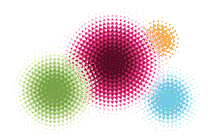The European Commission has instigated this technical assistance project to evaluate and derive a "points-system" methodology that could be applied to the development of Ecodesign requirements for complex products and/ or product systems. This need arises due to the increasingly common investigation of more complex energy-related products and systems for prospective Ecodesign and Energy Labelling implementing measures within the Ecodesign work plan, most notably since the advent of the 2012-2014 Ecodesign work plan. Examples of such products are machine tools, data storage devices and professional washing machines/ driers, which are complex in that:
- They may have more than one functional unit (i.e. the quantified performance of a product system for use as a reference unit in a life cycle assessment study), due to the variety of functions the product is capable of performing.
- The functional units may be inherently difficult to assess due to measurement or methodological difficulties.
It is also common for the product groups concerned to have varying degrees of heterogeneity that complicate their assessment against common metrics and measurement methods. However, as savings potentials from the adoption of appropriate Ecodesign technologies can be significant, and these technologies are theoretically capable of being assessed on a modular basis, the European Commission is interested in evaluating whether it is feasible to devise an assessment methodology for product systems comprised of technology/design modules that considers the ensemble of modular technologies deployed.
This notion was first explored within the Ecodesign process in the case of machine tools within a working document put forward by the Commission at the May 2014 Consultation Forum which proposed one potential option based around a points systems approach. The resulting discussion highlighted the potential of this notion but also the need to explore options in greater depth and to produce a rationale that would allow the viable approaches to be identified and their strengths and limitations to be assessed. The present technical support services contract aims to elucidate this issue via the conduct of analyses that will clarify the options, identify the most promising method(s) and then demonstrate their viability via some worked case studies.
To be able to fulfil the specific objectives of the project, our approach and methodology is structured into six tasks as follows:
Task 1 - Stakeholder consultation, including the compilation of a stakeholder list and a stakeholder survey.
Task 2 - Review of state-of-the-art methods, in which all relevant existing methodologies will be catalogued and reviewed, followed by a comparative analysis.
Task 3 - Method development, which entails the derivation of a prospective method for establishing Ecodesign requirements for complex products. This is to be derived from consideration of at least: a) the fit with MEErP, b) the fit with the provisions of the Ecodesign Directive, c) suitability for addressing energy-related and resource efficiency aspects, d) modular build on existing Ecodesign implementing measures, e) measurability via standards.
Task 4 - Case studies, where at least two product groups will be evaluated using the method proposed in Task 3. The Task 3 method may be iteratively revised and applied, as appropriate.
Task 5 – Additional work on case studies
The study will be carried out by a consortium that spans a broad spectrum of expertise including technological know-how and environmental engineering, economic and environmental assessment, market and consumer analysis. Waide Strategic Efficiency is technical leader of the study. Other involved project partners are VITO, Fraunhofer, Viegand Maagøe and VHK.

